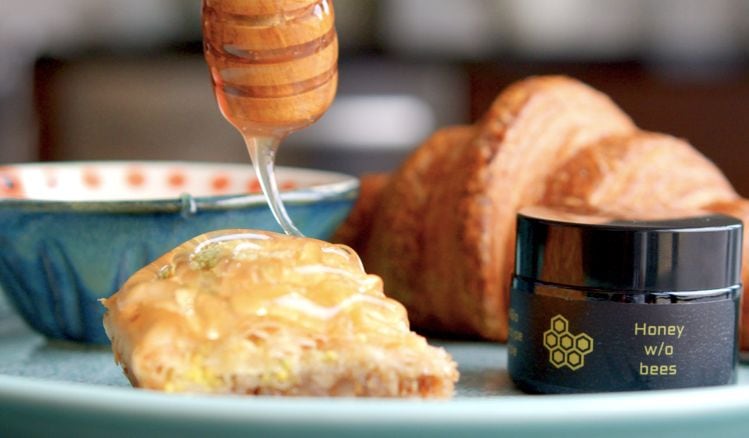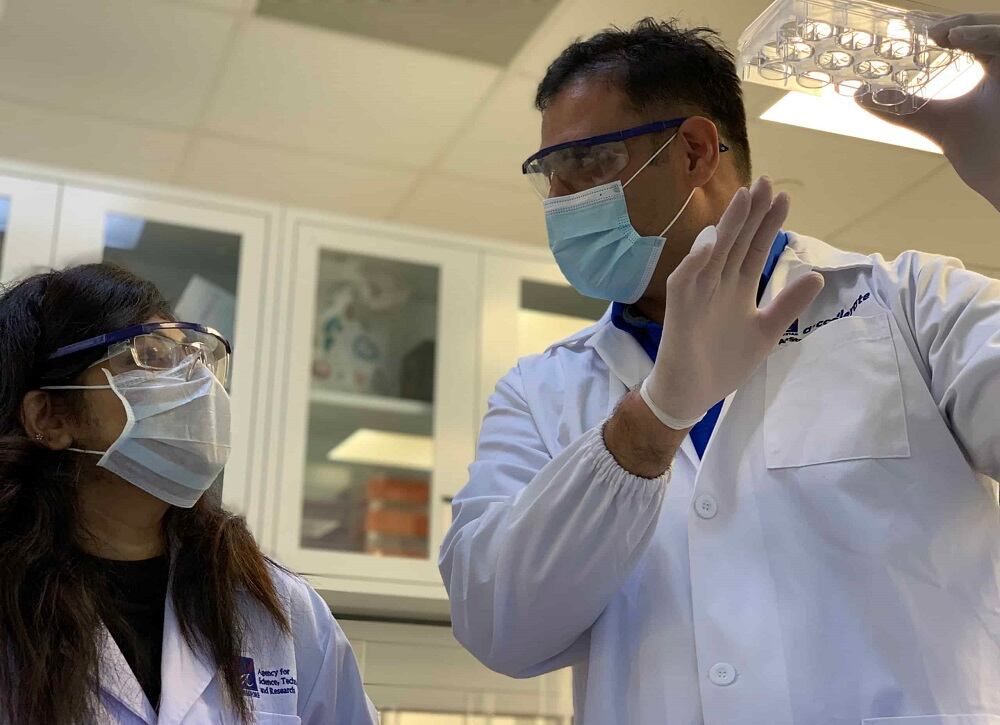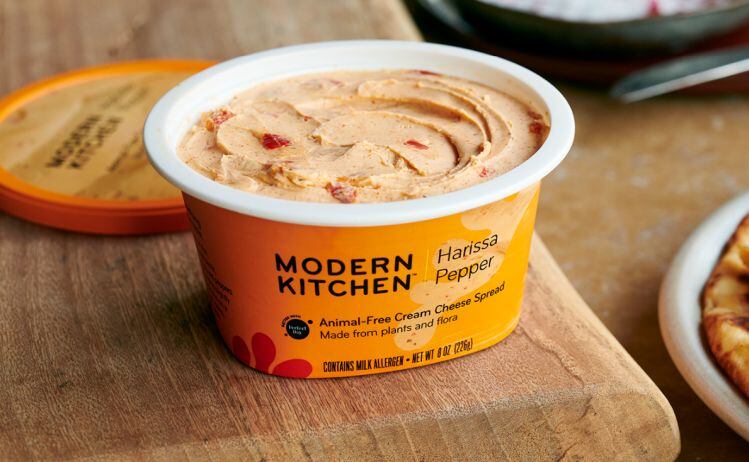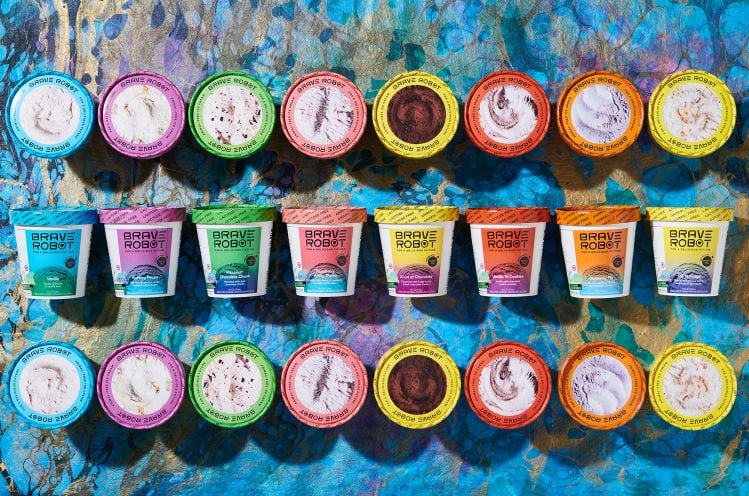The company - which is taking orders from foodservice and B2B customers for deliveries starting from the end of 2021, and the beginning of 2022 – hosted a tasting this week for 100 members of climate tech, food tech and investor communities in the San Francisco Bay area at an event organized at Cell Valley Labs, an incubator and networking space in Berkeley.
“The product is manufactured in the United States with most of the ingredients volumetric-wise being sourced domestically,” said CEO Darko Mandich, a Serbian entrepreneur and honey-enthusiast who teamed up with molecular biologist Dr Aaron Schaller to create MeliBio early last year.
“The first version of our product is fully plant-based, inspired by light clover honey and it has a patent pending,” he told FoodNavigator-USA. “Additionally we are also working on developing a proprietary synbio and precision fermentation technology that will empower us to reduce production costs and build a platform that will enable us to produce multiple varieties of honey.”
He added: “We have B2B customers from across the world excited about incorporating plant-based ingredients in their formulations. Now that MeliBio is able to produce plant-based honey at scale, they are excited to be among the first to incorporate it in their products and use it as a functional sweetener. We will be announcing exciting partnerships in the food and cosmetics industry towards the end of this year.”
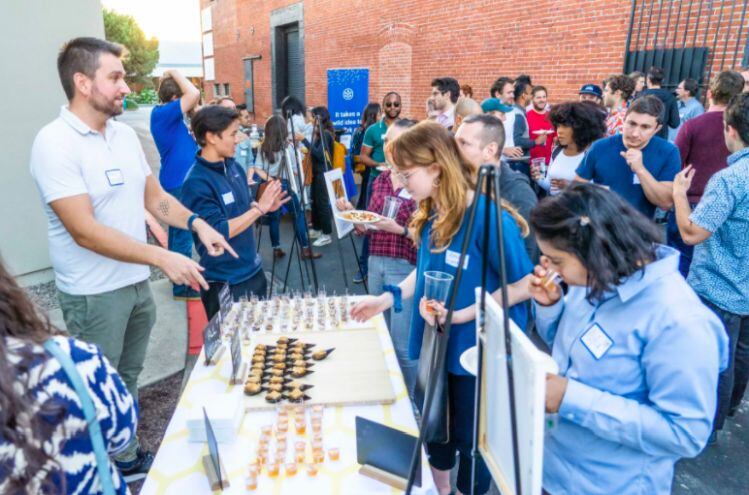
Can you call it honey on a food label?
So how is it making its honey… and can you call it ‘honey’ on a food label?
MeliBio is not (yet) going into details about its proprietary process, but says only that "plant science, synthetic biology, and precision fermentation" are involved.
The company - which has filed a provisional patent around its technology - said MeliBio is effectively biosynthesizing honey by replicating the multistep process that honey bees use to convert nectar (a sugary liquid produced by flowering plants) into food (digestion, regurgitation, enzyme activity, and evaporation).
The honey Mandich and Dr Schaller are producing contains all the key components of the real thing (which contains a complex mix of sugars, and small amounts of proteins, minerals, amino acids, enzymes, and micronutrients), including components of nutritional interest as well as sugars, he told us in a recent interview.
“Not only that, we are delivering the amazing taste and texture of honey, but also the micronutrients that make it amazing."
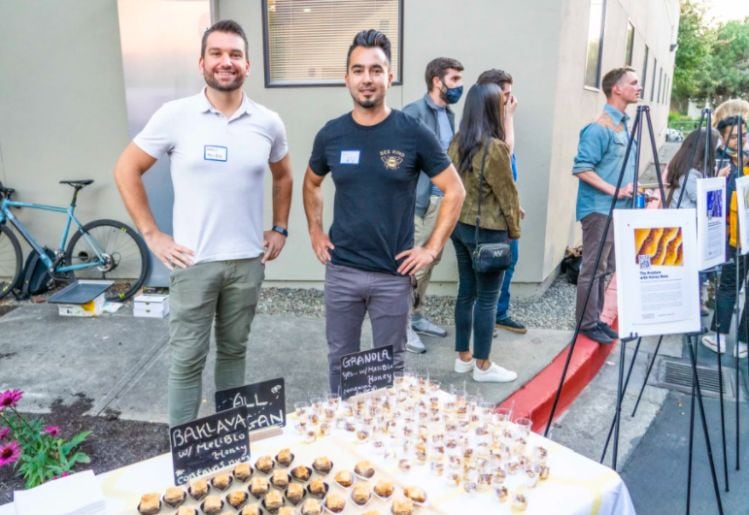
Labeling and regulatory questions
Mandich and Schaller are talking to legal experts about regulatory matters, but do not anticipate major challenges given that all of the components they are producing are identical to those in honey, which has been safely consumed for thousands of years.
“Our first product is fully plant-based, coming from ingredients that are already GRAS," said Mandich. "We’re not introducing anything novel or unfamiliar to the market.”
As for labeling, it’s a trickier question, as there is no US federal standard of identity for honey, although the FDA says in guidance issued in 2018 that “Reference materials in the public domain define honey as ‘a thick, sweet, syrupy substance that bees make as food from the nectar of plants or secretions of living parts of plants and store in honeycombs.’ FDA has concluded that this definition accurately reflects the common usage of the term ‘honey’."
According to Mandich: “We are proudly communicating that our honey is made without bees so the labelling reflects that, with few additional options where qualifiers such as vegan or animal-free could be used before the word honey.”
'We proudly say that our product is honey, but not produced by the bees'
The fact that animal products made without animals are already on the market is also helping pave the way for companies such as MeliBio, he added (Perfect Day’s milk proteins (made using a genetically engineered microbe), for example, are listed on ingredients statements as ‘non-animal whey protein’).
MeliBio hasn't revealed the micro-organisms it is working with. However, a group of students from the Technion – Israel Institute of Technology - won an award in 2019 for their work on a bee-free honey using the bacterium Bacillus subtilis.
"We are not at liberty to disclose our proprietary technology at this time," said Mandich, "though MeliBio has been aware of the Technion team's project using the B. subtilis system since it was made public. We commend them for this impressive work."
The business case for vegan honey
But why make honey without bees in the first place?
While the ethical and environmental rationale behind seeking alternatives to industrial-scale egg and dairy production is perhaps easier to understand, there are also compelling arguments for seeking alternatives to commercial-scale honey production, claimed Mandich.
The first argument is about simple economics, he said. US honey consumption, he points out, is showing significant growth, primarily from honey's use as a sweetener in packaged food products from snacks to beverages, while the global honey market is projected to reach $14bn by 2025, up from 8.4bn in 2018.
But at the same time, honey is getting steadily more expensive, while honey bee populations are declining due to viruses, parasites, bacterial and fungal pathogens, and climate change, so there’s an opportunity to step in with an accessible and affordable product that can be biosynthesized.
Commercial honey production
The second argument – which MeliBio lays out in more detail in a report on bees – spans ethics, biodiversity, and sustainability, and notes that while there are 20,000 bee species that can pollinate many different plants, there are only a handful of varieties of managed honey bees, which are bred to increase productivity and only pollinate a select number of plants.
This has narrowed the gene pool and increased susceptibility to disease and large-scale die-offs, says Mandich, who claims the presence of managed bees has a negative effect on native pollinators, by crowding them out and exposing them to disease.
Meanwhile, all bees, but especially native bees, are negatively impacted by the compounding effects of climate change, habitat loss, and pesticide assault, claimed Mandich, who also believes there are ethical issues with large-scale honey production.
“In the winter, when food is scarce," he told us last year, "honey bees feed off the honey they created to last through the winter. However, many beekeepers are raising their bees to harvest all of their honey, and may choose to kill off entire colonies to save themselves the time and effort required to have a colony survive the colder months.
"Those who do keep their colonies often choose to replace the honey with sugar syrup in the winter instead. This syrup lacks essential immune boosting compounds normally found in honey, such as pinocembrin and p-coumaric acid, leaving colonies more susceptible to pathogens.”
He added: “We’re taking their food from them, we smoke them, we expose them to disease.”
“Big Idea Ventures is backing MeliBio’s mission to take bees out of the honey supply chain, ensuring the wild pollinators and native bees vital to our ecosystem can thrive. MeliBio will be first to market with bee-free real honey in the US and APAC, used anywhere bee-derived honey is used today.”
Andrew D. Ive, Managing General Partner, Big Idea Ventures

